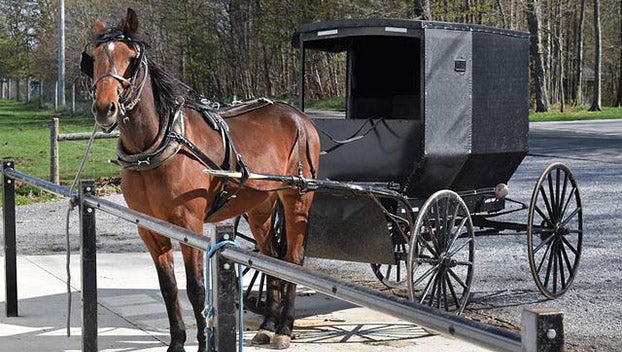DEQ hearing set for Aug. 10
Published 4:19 pm Monday, July 10, 2017
The Virginia Department of Environmental Quality (DEQ) is set hold a public comment period and five public hearings around the state next month to receive comments on draft water quality certifications “designed to protect water quality” along the route of the proposed Atlantic Coast Pipeline (ACP).
A hearing will be held Aug. 10 in Longwood University’s Jarman Auditorium from 6-10 p.m.
Parking is available in several parking lots across in the area of Jarman.
According to a DEQ press release, the public comment period to receive written comments on both pipelines is through Aug. 22.
“These hearings and the comment period are very important to helping DEQ meet its goal of protecting water quality,” DEQ Director David K. Paylor said in the release. “The pipeline construction is a complicated process, and we look forward to receiving valuable public input as these projects proceed.”
The ACP, being led by Dominion, is a 600-mile natural gas pipeline that would begin in West Virginia and end in North Carolina. The proposed project would span Buckingham County, including the James River and several creeks and streams in the county.
The 42-inch pipeline would also cross parts of Cumberland and Prince Edward.
In May, the Federal Energy Regulatory Commission (FERC) has postponed the issuance of its Environmental Impact Statement (EIS) regarding the ACP.
The EIS was previously set to be available to the public June 30, but will now be available July 21, according to a notice from FERC signed by Commission Secretary Kimberly D. Bose. The 90-day Federal Authorization Decision Deadline is set for Oct. 19.
“In response to comments on the draft EIS (which had a comment closing date of April 6), staff sent an environmental information request to (Atlantic Coast Pipeline, ACP) and (Dominion Transmission Inc., DTI) in April, and only recently received the information necessary for us to complete our environmental review. As a result, staff has revised the schedule for issuance of the final EIS,” Bose said in the notice.
In late December, FERC, which has regulatory approval of the project, released its draft EIS regarding the proposed pipeline, concluding the project’s impact would be “less than significant.”
“The FERC staff concludes that construction and operation of ACP … would result in temporary and permanent impacts on the environment, and would also result in some adverse effects. With Atlantic’s and DTI’s (Dominion Transmission, Inc.) implementation of their respective impact avoidance, minimization and mitigation measures as well as their adherence to our recommendations to further avoid, minimize and mitigate these impacts, the majority of project effects, with the exception of impacts on forest vegetation, would be reduced to less-than-significant levels,” the commission staff said in a December release.
According to the DEQ press release, the documents which DEQ is seeking comments on are referred to as 401 certifications.
“These draft certifications will place conditions on activities in upland areas that are near state waters and that may indirectly affect state water along the pipeline routes. These certifications are in addition to the requirements imposed by the (FERC), by the Commonwealth of Virginia for stormwater, erosion and sediment control, and by the U.S. Army Corps of Engineers for wetlands and streams,” DEQ officials said. “The conditions address, among other matters, impacts to public water supplies; engineering and best management practices for steep slopes and slide-prone areas; environmental monitoring and inspections; and development and implementation of plans and procedures for karst mitigation, spill prevention control, water quality monitoring and protection of riparian buffers.”
According to the release, DEQ is developing additional requirements “to ensure that Virginia water quality standards are maintained in all areas affected by the construction of these pipelines.”
“DEQ will require (the ACP) to provide detailed plans to assess whether construction activities in adjacent areas will adversely affect water quality during construction and to ensure that water quality is maintained into the future. This additional certification goes well beyond other regulatory requirements and will protect water quality across the range of pipeline activities, not just temporary construction impacts to streams and wetlands.”
In January, county supervisors approved a special use permit for a hotly-contested 53,783-horsepower station, slated to be constructed between Shelton Store and Union Hill Roads on Route 56, for the ACP.





